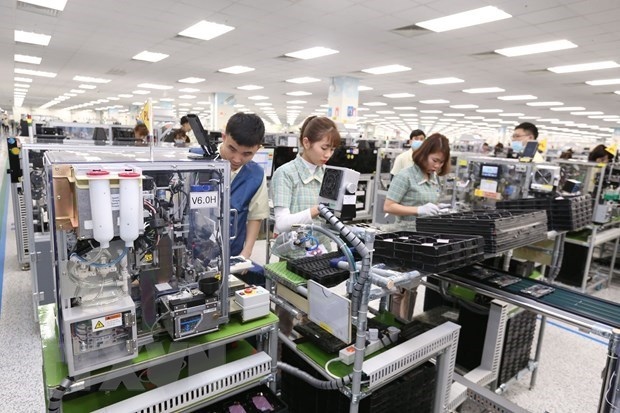Vietnam’s economic success story attributed to effective FDI attraction
Vietnam has become one of the world’s fastest growing economies since the country first opened up to foreign trade and investment more than three decades ago, with GDP last year being 12.5 times higher than in 2001.
The country’s success has been largely attributed to the effective attraction and use of FDI, which has helped its economy create large numbers of jobs, boost State budget revenue, foster restructuring, and improve competitiveness.
Minister of Planning and Investment Nguyen Chi Dung said FDI attraction laid the foundation for the development of key industries such as telecommunications, oil and gas, electronics, chemicals, steel, automobiles, information technology, footwear, textiles and garments, and food processing.
It has also played a vital role in boosting productivity and exports, he said, adding that the foreign-invested sector contributes more than 70% of Vietnam’s total exports.
The country has so far attracted more than US$370 billion in FDI, of which 58% has been disbursed, since the Law on Foreign Investment took effect in December 1987, paving the way for FDI attraction around the country.
FDI inflows exceeded US$38 billion in 2019, the highest in 10 years and up 7.2% against 2018. FDI disbursement stood at US$20.38 billion, up 6.7% year-on-year and a new record.
Due to COVID-19, FDI in the first eight months of this year stood at US$19.54 billion, down 13.7% year-on-year, a report from the Ministry of Planning and Investment’s Foreign Investment Agency (FIA) revealed.
FDI committed to newly-licensed projects, meanwhile, rose nearly 7% to US$9.73 billion. The FIA attributed the increase in fresh FDI commitments in the period to a liquefied natural gas (LNG) plant project in the Mekong Delta province of Bac Lieu with capital of US$4 billion, which accounted for 41.1%.
Additional capital to the tune of US$4.87 billion went to 718 existing projects, up 22.2% in capital but down 21% in project numbers.
According to the FIA, additional investment of US$1.38 billion to a petrochemical complex in southern Ba Ria-Vung Tau province and US$774 million to the West Lake urban area project in Hanoi contributed to the higher capital amount added to existing projects.
This is acceptable against a backdrop of sharply weakening global investment and economic de-growths in many countries induced by the pandemic, FIA Director Do Nhat Hoang said.
The report showed that, in the first eight months of the year, Singapore retained its position as Vietnam's largest foreign investor, with US$6.54 billion, followed by the Republic of Korea (US$2.97 billion, or 15.2%) and China (US$1.75 billion, or nearly 9%).
A new wave of investment has emerged, bringing Vietnam fresh opportunities, Hoang continued, and the country must be fully prepared and have a comprehensive set of measures to translate these opportunities into reality.
Professor Nguyen Mai, Chairman of the Association of Foreign Invested Enterprises (VAFIE), said Vietnam must work even harder to improve its business climate and help enterprises weather the COVID-19 crisis. He also advised the country to accelerate promotional campaigns to attract FDI from internationally-renowned conglomerates, especially those with high-tech and financial strength from the US, the EU, and Japan.
Former FIA Director Phan Huu Thang suggested that, to attract FDI faster, Vietnam could promote foreign investment attraction via its network of diplomatic representative offices overseas. At the same time, the Government should streamline public administrative procedures for major projects and actively support foreign-invested enterprises by removing barriers to the capital disbursement process, he noted.
A working group on promoting foreign investment was founded in June under a decision from the Prime Minister, led by Deputy Prime Minister Phạm Binh Minh.
It will be in charge of advising the Prime Minister on mechanisms, policies, and standards in investment cooperation as well as solutions to capture investment cooperation opportunities. It will act proactively in approaching and negotiating with large and hi-tech corporations for cooperative projects for mutual benefit.
Investment promotion activities will also be carried out to attract quality, large, hi-tech, and innovative projects that could create positive spillover effects and favourable conditions for Vietnamese companies to participate in value chains, increase added value, and improve human resources quality.

